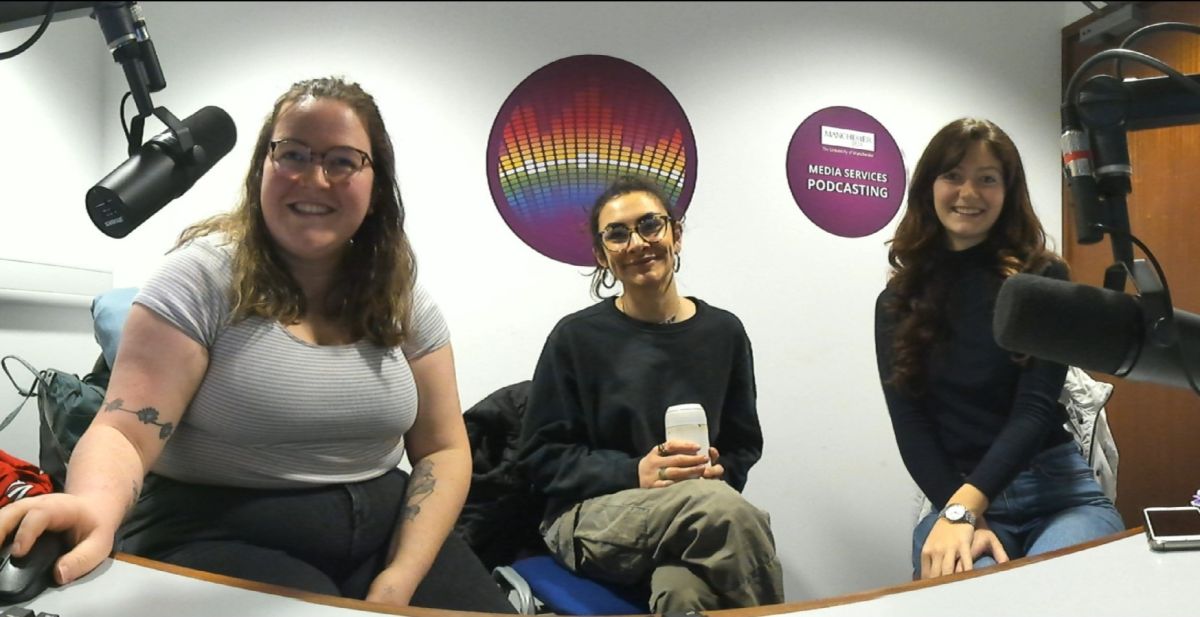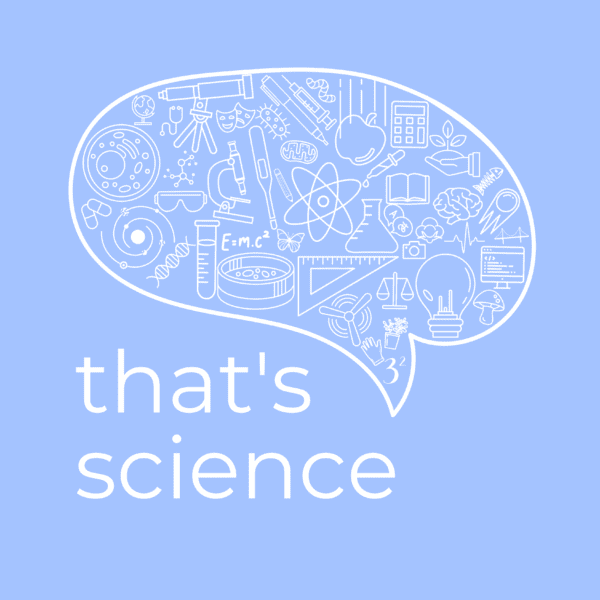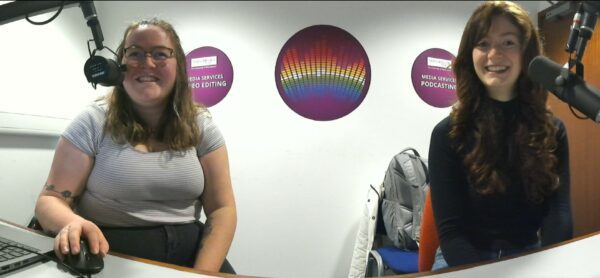That’s Science: Manchester student science podcast

Opposite Blackwells in the University Media Services Center, Amelia and I are getting ready to record the next episode of her and Susans’ podcast, That’s Science. This week we are talking about our experience with the scientific method and I am getting a ‘behind the scenes’ look into recording a podcast.

Amelia Doran, the creator of the podcast, is a Master’s student in Science and Health Communications. She runs the ‘What’s Science’ section of the podcast which discusses how the history of science influences the practice of scientific research today.
Susan O’Flynn is a second-year English student with a minor in the History of Science, Technology and Medicine. In her section of the podcast, ‘Is That Science?’, Susan explores the many intersections between the humanities and the sciences, and the role our wider culture plays in shaping scientific research.
The two halves of the podcast form alternate weekly releases and feature academics and students from the University of Manchester as guests. Their previous episodes have covered scientific journal articles, objectivity in science and why we study the history of science.
Recording in session
To prepare for today’s episode, Amelia and I have both studied a selection of reading Amelia prepared to educate us about the history of the scientific method. In particular, we discussed the transition from alchemy to modern chemistry, which I studied for my undergraduate degree.

The inspiration for the podcast came from Amelia’s Master’s course: “I thought we had really interesting discussions in class and people would want to listen to that as a podcast.” Susan later joined the podcast after being signposted to Amelia by Planet Bee Magazine editors.
Planet Bee Magazine publishes the voices of Manchester’s science students and has writing, editing and graphic designing contributors from the University of Manchester, Manchester Metropolitan University and the University of Salford.
Media services and audacity
Today, we are recording the podcast’s fifth episode in the Media Service’s podcasting booths on a recording and editing software called Audacity. Amelia explained, “you just email the Media Services and ask for a podcasting booth! They have all the stuff to make it sound really professional. Audacity is easy to learn and commonly used so there are loads of YouTube tutorials.”
Susan added, “I came to the software with no idea how to use it and I’d like to say I’m relatively proficient at it now because Amelia has taught me.” Media services also offer a course to teach students how to use Audacity and are on hand to help in the booth and editing suite. Amelia learned how to use the software when she was running the Acapella Society social media at Lancaster University, explaining, “during the Covid pandemic I mixed a couple of videos where everyone sent in their files.”
“We’ve got the basics but we are still learning”
When I asked Amelia and Susan about their experience working together it was clear they have a great time. Susan said, “our work is separated but somehow the topics that we have chosen have managed to fit well into each other. I was really daunted coming to a science podcast because I don’t have a background in science, but working with someone who is so keen to teach and learn has been really lovely.” Amelia added, “it’s been really fun, we get on very well.”
Amelia and I recorded the podcast episode for about an hour and I had a lot of fun talking into the microphone and watching the waveforms follow our voices. Amelia told me the fun part of the podcast is, “getting my friends and lecturers into the recording studio, as well as seeing my own name on Spotify.”
Susan said, “it’s really nice putting your energy into something that isn’t just university, I found it super draining just constantly doing university essays and worrying about deadlines and I wasn’t really exploring my own interest outside my course.” However, they both agreed having to edit out breathing noises and listen to the sound of their own voice is the worst part of making a podcast.
Any advice for budding podcasters?
Amelia and Susan hope raising awareness of Media Services and its facilities will encourage other students to use this great resource to produce their own media. Susan said, “knowing that the team is on hand to help you, even if you are a complete novice, is nice.” Media Services provide training in audio-visual technologies and graphic design as well as loaning equipment for all University of Manchester staff and students.
Watch this space
In the future, Amelia and Susan are planning a joint episode on the topic of climate change for Earth Day, with a guest academic lecturer. You can listen to That’s Science Podcast on Spotify, Apple Podcasts, Google Podcasts and Acast. The episode Amelia and I recorded will be available to listen to now.







